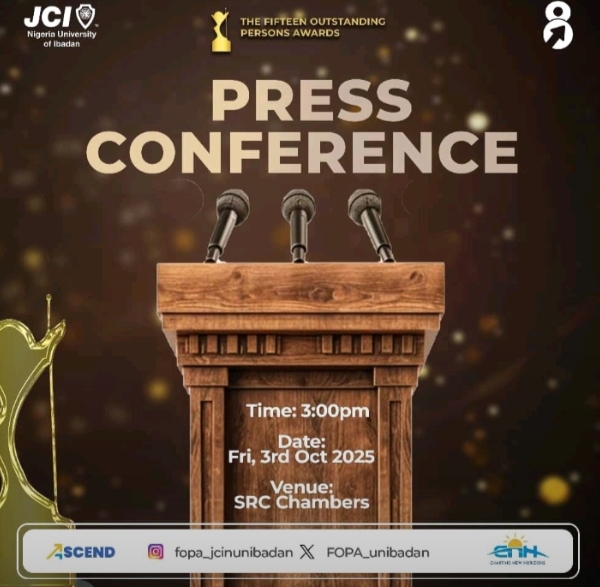Editorial: Journalism Beyond Press Release

At the heart of journalism lies a simple creed: seek truth, report it, and hold power accountable without fear or favour. That duty does not bend to the comfort of those in authority, nor wait for permission before revealing what the public deserves to know.
When the Press reported the suspicion of financial misconducts, it was not to dent anyone’s image. It is to hold power accountable, to keep records straight, and to provide the public with the facts they have a right to know. That is why, when AFAS Press, IndyPress, ZikPress, and HistoryPress in affiliation with the Union of Campus Journalists organisations jointly released reports detailing alleged financial misconduct within the Student Union committee members, we did so not in service of gossip, but in service of the community’s right to truth.
The claim that the Press is “biased” because its reports revealed uncomfortable details is as hollow as it is predictable. Bias would have been publishing rumours without providing the reports. But the reports in question drew lead from the documents of the Audit and the Disciplinary Committees of the Students’ Representative Council (SRC). To accuse the Press of manufacturing the story is not just unfair, it is dishonest. It is a deflection meant to distract students from the actual substance: that funds meant for the Union found their way into private account, that a questionable ₦2 million appeared in the records with no knowledge of approval, and that another one is yet to give a full account of how they execute the funds meant for freshers’ welcome week.
The irony is that the reports brought legitimacy to Congress itself. Students turned out in numbers, not because executives sent a press release, but because the Press did its job: it informed, provoked debate, and raised the level of public scrutiny. It is the power of information to compel accountability, even when leaders would prefer delay and denial. Without those articles, the session at the SUB Foyer might have been just another dull gathering, and in fact it is still not proven that we got the required quorum needed for the congress.
But when the “clarifications” finally came, the show ended. The executives stood before the Congress and explained: no, the Union did not borrow from the Central Bank; the ₦2 million came from students’ through CBN. Yes, it was used to fund a bursary for 37 students.”. I have the constitutional right to receive funds into my account” That was all it took for the congregation to disperse. No one questioned if the SRC approved the 2 million. No one pressed for transparency in how “37” beneficiaries were chosen. For a Congress that began with so much promise, it ended as little more than a performance, with the students playing the part of passive audience rather than active citizens.
The real crisis is not the reporting. The crisis is a student community that mocked the messengers instead of interrogating the message. The crisis is an executive council that prefers to smear journalists than to open its books. The crisis is a Speaker who, faced with glaring evidence, chose to allow the press to put in a bad light. These are the obstacles to accountability, not the Press.Press freedom is not conditional upon the comfort of those in power. It does not wait for executive permission slips. The Press does not exist to publish only what leaders approve. If journalism is reduced to typing out official statements, then it is no longer journalism, it is stenography.
We remind the Union, and the student community at large, that a free Press is not an enemy of the people. It is the people’s representation. To shout “bias” at every uncomfortable revelation is to confess fear of truth. To jeer at reporters is to jeer at one’s own right to know. If students will not defend their own watchdog, they should not be surprised when the thieves in the temple run wild.
And not that at this point in time of intellectual growth, we are still suspicious of press freedom, then we are in lewd deprivation of intelligence. The Press will continue to report; beyond press releases, beyond intimidation, beyond cheap accusations. Because accountability is not a favour; it is a duty. And press freedom, regardless, is not up for negotiation.
A Union without a free Press is blind; a student community that mocks its watchdog chooses to remain in darkness.








